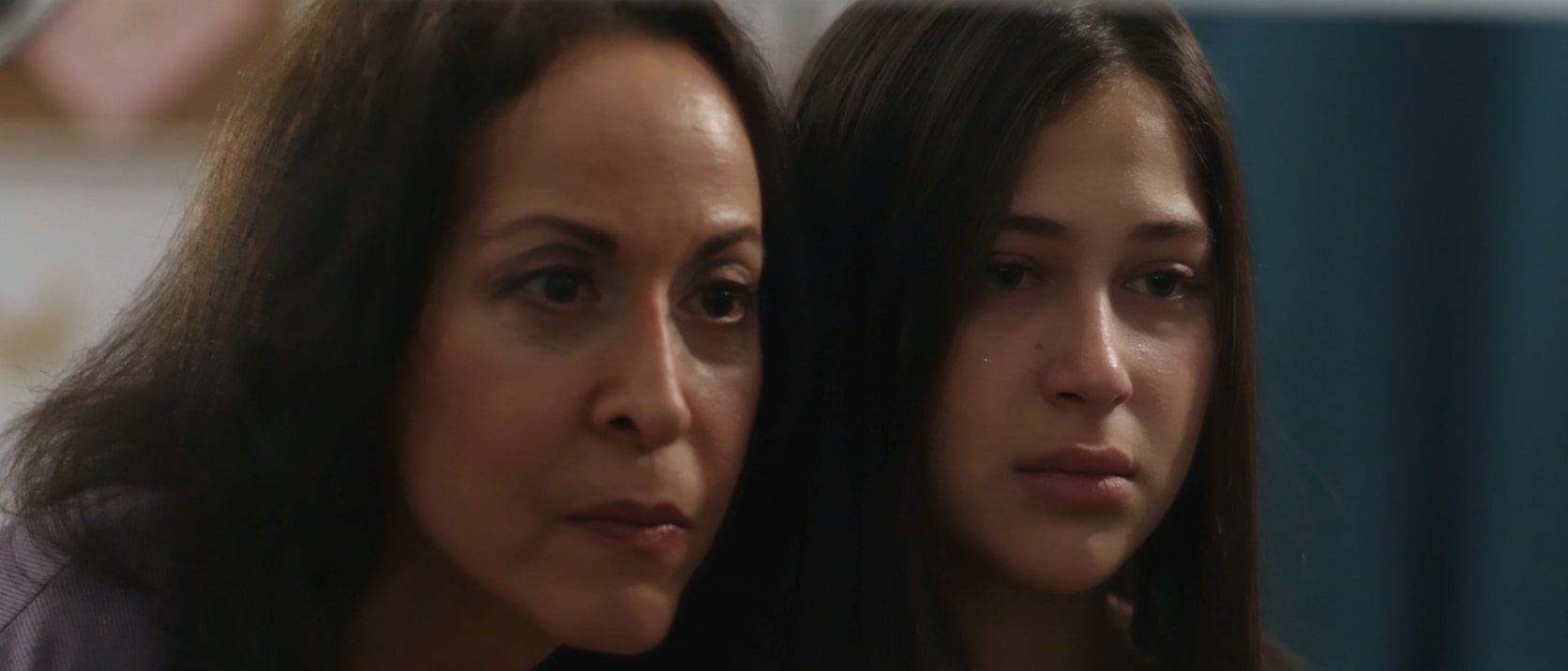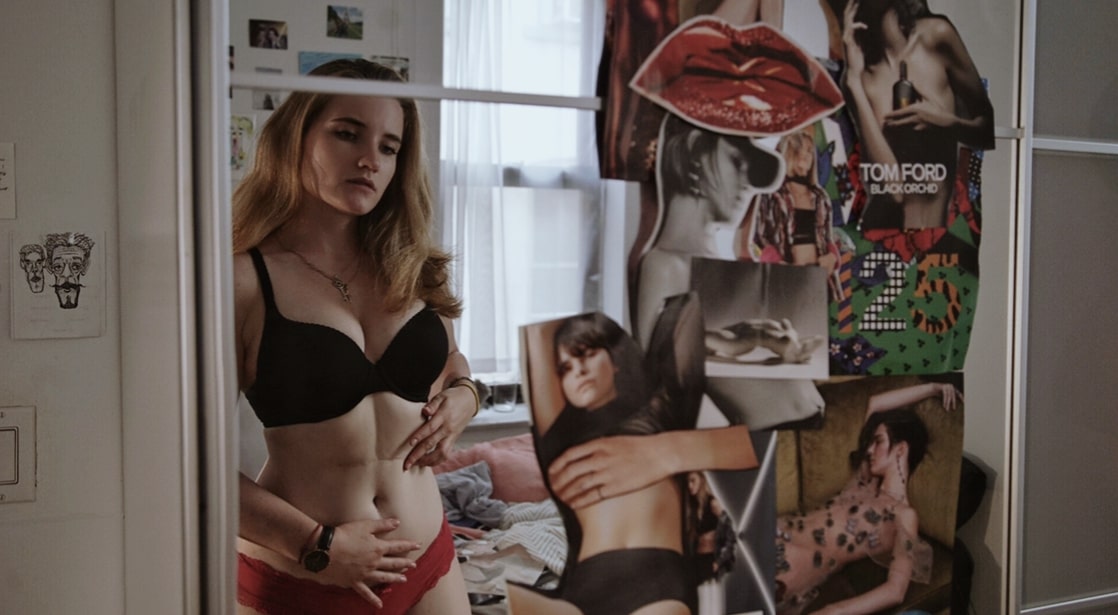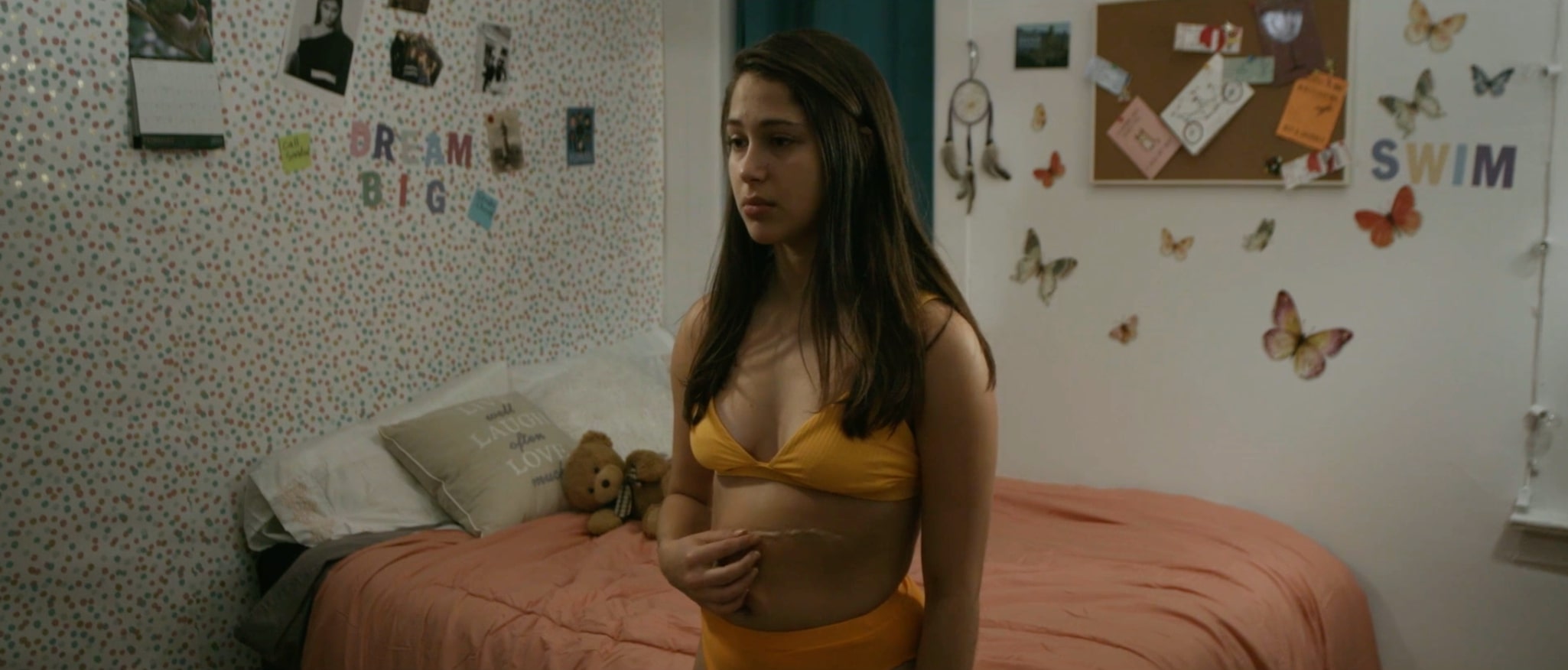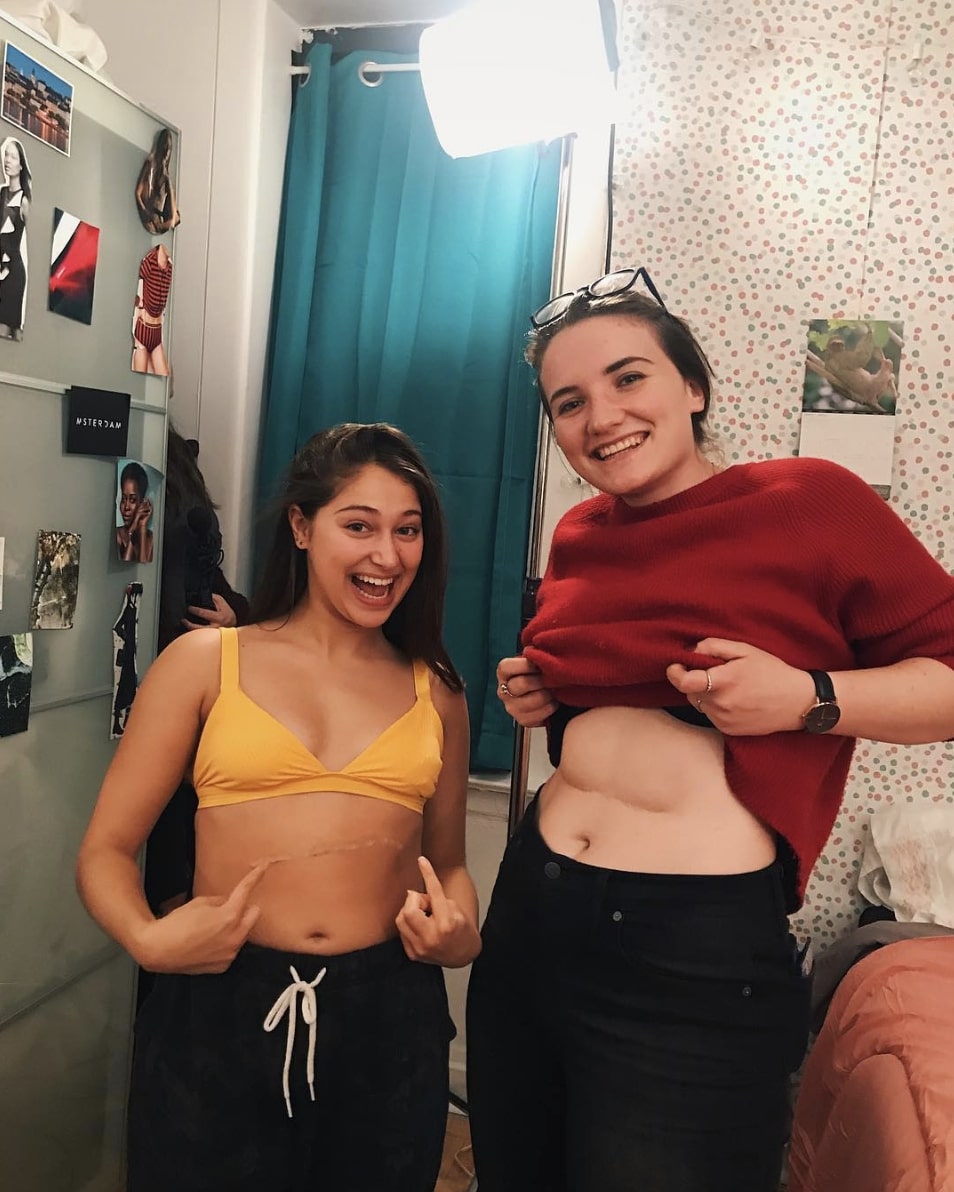 Polina Buchak
Polina BuchakArtist Spotlight: Polina Buchak
“Last year was the first time I uttered the words ‘thank you’ to my body for keeping me alive through everything.”
By Sarina Freda
11.17.2021
COPY’s Sarina Freda speaks with director Polina Buchak about her short film, Pool Party.
This is a personal story. How important to you was it to tell the story authentically?
The scar itself was modeled on my own, and the climactic scene of the mother finding the daughter covering her scar up with makeup actually happened. It wasn’t word-for-word, but I was talking to my mom and she asked, “Remember that conversation?” and I said, “Oh yeah.” You kind of black out when you’re talking to your parents and you don’t really remember what you say. But getting to hear my mom’s point of view was amazing. When she made this decision she knew it would literally save my life, but I'm seeing it as, “You made me look like a broken person.” So talking about how both of us felt was nice—not just for my mom and I, but it was also great to bring to the actors to help them find that relationship.
A lot of the film is about how we perceive ourselves, so I focused a lot on mirrors. We start by watching Nika seeing herself through a mirror. We aren’t actually focused on her—we are seeing how she sees herself, and she’s never satisfied. She’s always looking for something to fix. With the end shot, I choose to shoot it while she’s looking at herself in the mirror because it doesn’t really matter what she sees now—her opinion has changed, and she is taking that step forward to work on herself and accept herself.
This is a personal story. How important to you was it to tell the story authentically?
The scar itself was modeled on my own, and the climactic scene of the mother finding the daughter covering her scar up with makeup actually happened. It wasn’t word-for-word, but I was talking to my mom and she asked, “Remember that conversation?” and I said, “Oh yeah.” You kind of black out when you’re talking to your parents and you don’t really remember what you say. But getting to hear my mom’s point of view was amazing. When she made this decision she knew it would literally save my life, but I'm seeing it as, “You made me look like a broken person.” So talking about how both of us felt was nice—not just for my mom and I, but it was also great to bring to the actors to help them find that relationship.
A lot of the film is about how we perceive ourselves, so I focused a lot on mirrors. We start by watching Nika seeing herself through a mirror. We aren’t actually focused on her—we are seeing how she sees herself, and she’s never satisfied. She’s always looking for something to fix. With the end shot, I choose to shoot it while she’s looking at herself in the mirror because it doesn’t really matter what she sees now—her opinion has changed, and she is taking that step forward to work on herself and accept herself.

What I loved so much about the end of the film was its simplicity. It minimized her pain in this beautiful way. There was no proclamation of self-love, but the step she takes is so massive.
Something my mom said to me was, “You fought your life battle already. Everything is uphill from here. You are a warrior already, so why are you stressing out?”
Did you always know you were going to tell this story one day?
I was on a plane, about to start a new semester. I knew I would be taking a narrative production class, and I knew I needed to make a film. So I was like, “What are we doing?!?” The problem with me is that whenever I come up with ideas they become these grand things, like I’m starting to see airplanes crashing and a massive locker room with all these people and I had to be like, “Okay think skinny, you’re a student.” The reality of your budget? Very skinny. And I was sitting on the plane and thinking about maybe telling the story of a girl and her scar. I lived in Nigeria and I was always doing a lot of aquatic activities, and bikinis were my worst nightmare. I’m still getting used to them. I was piecing all of this together. I started with the character, and one of my professors told me, “You don’t really know your character well enough if you can’t see how they’re sitting.” What is their body language? That will help you figure out what kind of person they are.
I love how you came up with it on a plane. I feel like all of my greatest ideas have been on a plane. There is something about plane brain. Like when you want to work on a plane, amazing things can happen.
You are really hitting the spot or you are just tapping out.
Someone’s gotta do some research.
I try to take lengthy subway rides while listening to music writing in my Notes app.
Yes! It’s amazing! You’re alone but you’re not. Sometimes when I'm alone and I'm working on something creative, I just go crazy. You just get so internal. But being private in public is kinda the magic.
Yes exactly, I have my whole office set up but all I do is procrastinate.

I love material with tween/teen girls—PEN15 is just absolutely brilliant to me. There is something so visceral about it.
Literally, it’s like WTF is going on?!?
Was it important to you to tell that story with that body at that time?
I drew a lot of inspiration from that experience, but I think we are drawn to coming-of-age stories because those people are not full adults, but they know what they are doing and they are trying to deal with life. Everything feels like life or death, but of course it isn’t. I also think it’s because that’s when I had the most of my issues with my scar and saw it in a negative light rather than seeing it as my source of resilience and strength and fucking life. Last year was the first time I uttered the words “thank you” to my body for keeping me alive through everything.
Is this the first time you directed a film?
Yes. I love the story. It’s been a couple years now and I’d like to say that I've grown since then in terms of visuals and communicating things through cinematography, and production value overall. But it was a $3000 budget, I had the Canon C3 our school gave us, and I was like, “Great.” The best stories don’t need to be shot on an Alexa. As long as the story is good, people will watch it. And I cut A LOT.
Was that hard?
YES. But I very much trusted that there was a lot that could be cut without losing the story. If it’s not necessary or not doing anything for the story, then why do you have it? Any creative person goes through this process. I’m really okay with criticism as long as it doesn’t change the story.
That thing you said about being three years out, we’re all constantly changing so fast, it’s kind of insane.
Yeah, once you’re done with a project you’re so over it. You know everything you can do better and you never want to see it again. Back then I thought my editing was so spontaneous, I was like, “Where is my Oscar?” Now I look at it and I should have put a trigger warning on it. Your eyes will hurt.
Did this project energize you to continue directing?
Yes, I've become pretty comfortable identifying as both director and producer. I love logistics and putting puzzles together, but I also love being creative because I can’t be doing that constantly. And I’d like to say it makes me a better producer and a better director. It’s going to take time for me to hone my voice, my style, and what stories I want to tell. Hopefully my next projects connect back home with Ukrainians and Ukrainian-Americans. There are so many stereotypes, especially with Eastern European women, and I want to break them. As a producer, I want to work on projects with passions that I share. As long as my work as a director or a producer can shift someone’s perspective, then that’s great. Impacting one thing at a time.
Sometimes you just need to take a seat back and take in whatever is going on in your life, and ask, “What are the things I really want to work on?” “What is important to me?” We are surrounded by so many talented human beings, but once we decide what we want to do in this world and focus on that, then there’s nothing left to do.

